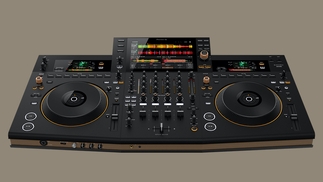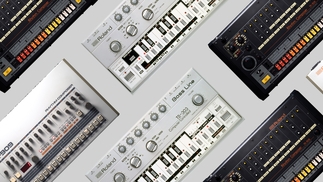UNER & STEVE MAC TALK NATIVE INSTRUMENTS' STEMS
Two respected producers lock horns over new NI technology
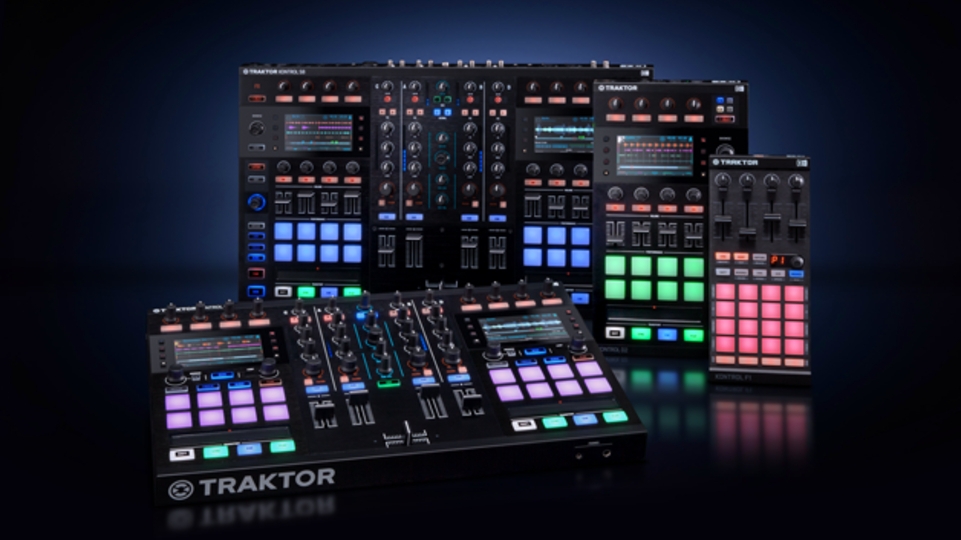
Stems are the latest bit of tech designed to change the way DJs and producers play live. But there's been some divided opinion as to how their use is going to pan out. DJ Mag contacted two DJ/producers with opposing views to tell us what they think about stems...
Stems are basically the parts of a track broken down into different elements. Unlike regular stereo files, Stems contain four music components alongside a stereo master. Just like a four-track recording, drums, synths, vocals and bass elements play on different tracks.
Proponents of Stems point to the ability to isolate individual sounds without EQ bringing a studio aesthetic to DJing. Artists like Uner, Nic Fanciulli and Carl Craig are already adopting the format for their shows. While Stems advance the ability to remix live, their innovation also brings concerns over the ease of sampling. But in a clever move, makers Native Instruments have made the format open, meaning other manufacturers could adopt it in the near future...
FOR STEMS: UNER

“Ever since I started DJing, I wanted to be able to play with the different elements of a track. I remember wanting to have just the vocals of one track and mixing it with the drums of another. Now this is easy thanks to Stems.
“For DJs, Stems really open the doors to new creative possibilities. And if you make your own tracks, you can play them in front of a crowd with the same level of control as in the studio. This makes things interesting not only for the artist, but also for the people who are listening. With Stems, a DJ set can easily become a live set, or not. Depends on how you choose to play with them.
“Stems also represent new opportunities for music producers. Because Stems is a new format, you can get your music noticed more easily. If someone makes a house track and releases it in Stems format, that track won’t be competing with several thousand other house tracks. This is a big opportunity to be visible. Also, I think Stems can generate more income because some people might buy your tracks because they like a particular element of it — like the vocals or the melody, for example.
“Stems do raise the question of sampling and copyrights. But to be honest, sampling has existed since the beginning. Even before Stems, if someone wanted to take parts of a track to create their own track, there are many ways to do so. Maybe Stems make that job a little bit easier, but it’s not a bad thing. If someone is going to steal my drums to make their own track, I prefer they get a nice clean version of them. And let’s not forget that you still have your copyrights, so if you choOse to exercise them, you can. At the end of the day, if you have a major problem with someone making an edit of your track or using certain elements of it to create a new piece of music, I think you are working in the wrong industry.
“When it comes to sound quality, Stems sound perfect. In the beginning, I wondered if Native Instruments could get Stems to sound as good as the original. But now that I have been playing Stems on big sound systems, I think they sound even better than the original because if you take out a kick-drum, or a bassline for example, the rest of the track still sounds amazing. Also, when making the Stem files using the Creator Tool, you can easily compare the original with the Stems version and make them sound exactly the same.
“For me, Stems is a new era for the music industry. Stems will change the way we make, play and listen to music. For the better.”
AGAINST: STEVE MAC (RHYTHM MASTERS)

“When I first heard about Stems, it was at the Brighton Music Conference back in June this year. I attended the Native Instruments party as one of my good friends was cooking dinner there. I spoke to a couple of people there about it and my first reaction was... erm.
“First of all, my problem was mastering. Anybody that knows me knows that I put a lot of work into my records and use a lot of high-end gear — compressors and EQs etc. The first thing they told me was that the app for Stems has a built-in limiter and compressor. OK, for a start, this is going to have a big effect on how the end result of the master sounds. There is no way it is going to sound like my high-end analogue gear.
“I know most people don’t really give a shit any more, as music has just been getting cheaper and more disposable over the last ten years, and most music — especially dance music — is made on laptops and virtual synths, with plug-ins etc. A lot of my peers still use a lot of outboard gear, however, and I think it has been getting more popular again as it just has that big sound that the totally in-the-box world does not have. Don’t get me wrong, I use the best of both worlds — the analogue and digital — as they both do different things, which are great, but I still want my end results to sound the best that they can. It's like you can tell a record that has been professionally mastered against a track that has just had an L2 limiter thrown over it.
“My second problem with Stems is sampling and copyright of music. It's bad enough with acapellas and dodgy mash-ups on Soundcloud, but this opens up a whole new aspect of sampling. For instance, I have been working on an acid house album the last few months and most of the sounds I made with a 303, 101, 808, 909 etc. Now, with Stems, this means that anyone can go into the core of my records and lift anything they want and make new tracks out of my parts.
OK, on a positive note, someone could come up with an absolute killer remix of one of my tracks. On the other hand though, they could just lift my 303 line, drop it two semi-tones and make a new record out of it. That would piss anybody off that has put the time and effort into making their music. With sales the way they are now, it's hardly worth taking legal action because — as we all know — that costs a fortune, so in most cases we would just have to grin and bear it.
“My positive note on Stems is that for the DJ — for example, the master-mixers like Cox, Zabiela etc — using Stems can open up a whole new world to them. They can probably do some amazing on-the-fly remixes, which I think is great. Maybe I’m just old skool and need to get with the times, but for now I personally won’t be breaking my music down into Stems.”
NATIVE INSTRUMENTS SAY:
“The Compressor and Limiter found in the Stem Creator should not replace the normal mastering process. We have provided guidelines on how to master for Stems as part of the Stem Creator Tool download kit (currently available as public beta from www.stems-music.com). These Guidelines include instructions on how to master with outboard gear.
“We also suggest mastering the stems during the same mastering session as the stereo master, so that the same equipment and the same settings can be used for both the master and the individual stems — including analogue gear. The Compressor and Limiter are under the full control of the producer, who can ensure the sound matches the stereo version.
“Stems also have the potential to sound better than stereo masters, as they spread the music across four stereo files. This increases the dynamic range and puts less pressure on the AAC compressor, meaning less information is thrown away as there's more bandwidth overall. Users will also get the option to make Apple Lossless versions, which offer the same quality as Wav and Aiff, also at high sample rates and bit depths, but at half the file size.
“In a time where more and more people are streaming music, Stems gives people another reason to own music and because of the extra effort involved in creating Stems and the potential they give the user, they can be sold at a higher price, making more money for the artists and labels.”
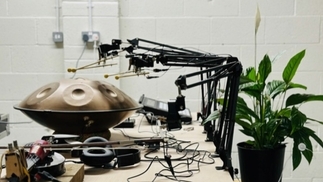
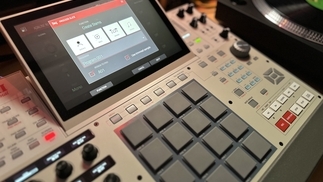
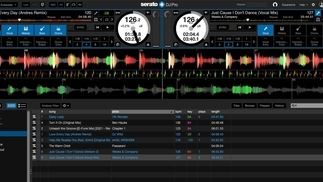
![Screenshot of [untitled] app interface](/sites/default/files/styles/djm_23_323x182_jpg/public/2023-09/untitled-app-music-new-1400x700.jpg?itok=pro0ZaB4)
